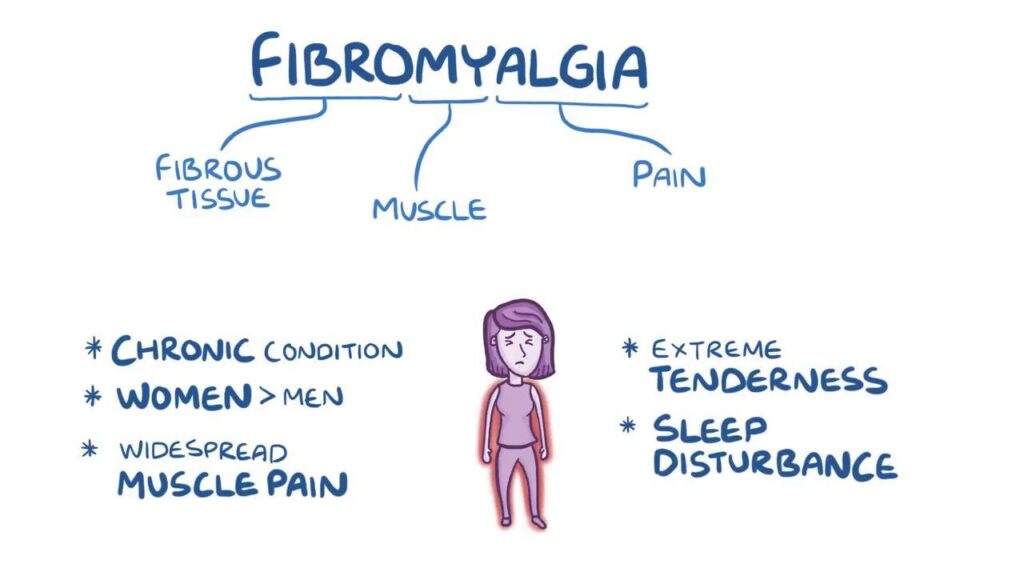 Fibromyalgia is the most common musculoskeletal condition after osteoarthritis. Widespread muscle pain and tenderness is the best way to sum it up. Still, it is often misdiagnosed and misunderstood. Characteristics include widespread muscle and joint pain and fatigue as well as other symptoms.
Fibromyalgia is the most common musculoskeletal condition after osteoarthritis. Widespread muscle pain and tenderness is the best way to sum it up. Still, it is often misdiagnosed and misunderstood. Characteristics include widespread muscle and joint pain and fatigue as well as other symptoms.
Fibromyalgia can lead to depression and self isolation. Its exact cause is unknown but is believed to involve psychological, genetic, neurobiological and environmental factors.
Symptoms of fibromyalgia include:
- chronic muscle pain
- muscle spasms, or tightness
- moderate or severe fatigue and decreased energy
- insomnia or waking up feeling just as tired as when you went to sleep
- stiffness upon waking or after staying in one position for too long
- difficulty remembering, concentrating, and performing simple mental tasks (“fibro fog”)
- abdominal pain
- bloating
- nausea
- constipation alternating with diarrhea (irritable bowel syndrome)
- tension or migraine headaches
- jaw and facial tenderness
- sensitivity to one or more of the following: odors, noise, bright lights, medications, certain foods, and cold
- feeling anxious or depressed
- numbness or tingling in the face, arms, hands, legs, or feet
- increase in urinary urgency or frequency (irritable bladder)
- reduced tolerance for exercise and muscle pain after exercise
- a feeling of swelling (without actual swelling) in the hands and feet


